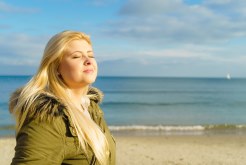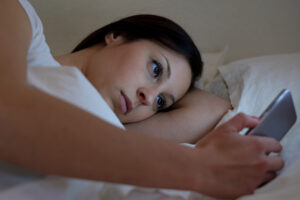 What if a research study was conducted with actual real human beings (not animals) that demonstrated a mere one to two minutes a day of exercise could result in better, stronger bones? Well, there is one.
What if a research study was conducted with actual real human beings (not animals) that demonstrated a mere one to two minutes a day of exercise could result in better, stronger bones? Well, there is one.
With increasing age, our bones become weaker and less dense, particularly in women after menopause due to the decline in estrogen and calcium in the body. More and more studies are finding that physical movement and activity can counteract the effects of weaker bones and any tendency toward bone fractures.
Epidemiology is the study of how often various diseases occur and also what possible ways or methods might exist to control or eradicate them. The most recent study on the topic of bone health was published in the International Journal of Epidemiology. The burning question in the researcher’s minds was this: How do we discover what type of exercise, what quantity of exercise, and what intensity, would provide the most positive, beneficial impact on bone strength.
For the study, both pre and post-menopausal women wore small wrist monitors for a week that measured and recorded the intensity of their physical movements. It was particularly important to the researchers to be able to record very short amounts of activity. They looked at data for more than 2,500 women, and compared their activity levels with bone health, which was measured by an ultrasound scan of heel bone.
The outcome? A mere one to two minutes of flat-out, intense exercise resulted in an increase in bone strength. This translates to a minute or two of slow jogging for a post-menopausal woman or a minute or two of running for a pre-menopausal woman in order to achieve a 4% increase in bone health. Women who did more than two minutes had a 6% increase. (Please see further recommendations below on how to safely transition into more intense exercise).
The lead author of the study, Dr Victoria Stiles of the University of Exeter in the UK, said: “We wanted to make every second count in our analysis, because short snippets of high-intensity activity are more beneficial to bone health than longer, continuous periods. We were careful not to ignore short bursts of activity throughout the day.”
Dr. Stiles makes a suggestion for people who are interested in upping their levels of daily exercise. She said: “The UK’s National Osteoporosis Society recommends increasing your walking activity first. Further on, we would suggest adding a few running steps to the walk, a bit like you might do if you were running to catch a bus.”
Another proven way to increase bone health is to include more calcium-rich foods in the diet. Olive oil, leafy greens, almonds, raw cheeses, yogurt, broccoli and carrots are good choices. Calcium, magnesium and vitamin D supplements are also beneficial. Not only do these minerals strengthen bone and muscle health, but they are proven to calm sleeplessness and insomnia as well.
One study published in the European Neurology Journal found that calcium levels in the body are higher during some of the deepest levels of sleep, such as the rapid eye movement (REM) phase. The study concluded that disturbances in sleep, especially the absence of REM deep sleep or disturbed REM sleep, are related to a calcium deficiency.
William Sears, M.D. writes: “Calcium helps the brain use the amino acid tryptophan to manufacture the sleep-inducing substance melatonin. This explains why dairy products, which contain both tryptophan and calcium, are one of the top sleep-inducing foods.”
One calcium-based supplement shown to be effective for insomnia is Sleep Minerals II from Nutrition Breakthroughs. This formula contains highly absorbable forms of calcium and magnesium, the best minerals for sleeplessness and insomnia, as well as for menopause insomnia, heart health, restless leg syndrome and bone strength. It also includes vitamin D and zinc and is delivered in a softgel form with healthy carrier oils, making it more quickly absorbable than tablets or capsules and providing a deeper, longer-lasting sleep.
Sadie D. from the Netherlands says: “I am ever so grateful that I discovered Sleep Minerals II after suffering with premenopause and now the real menopause insomnia. I felt like I was slowly losing my mind due to the continual lack of sleep. I can’t express the relief of getting a good night’s sleep and being able to function properly.”
Richard P. of Parkville, Maryland says: “The Sleep Minerals are making quite a difference. I was regularly waking up at around 3:00 a.m. and couldn‘t go back to sleep. Now I wake up once to go to the bathroom, but the great thing is, I then fall back asleep and sleep several more hours.”
The main message is that a combination of exercise and calcium tend to ignite into a dynamic duo that can bring great boosts to bone health, healthy sleep and good overall health.
This health news is provided by Nutrition Breakthroughs, a publisher of nutrition articles and supplier of effective natural remedies since 2002. Nutrition Breakthroughs makes the original calcium and magnesium based natural sleep aid Sleep Minerals II, as well as Joints and More, the natural solution for joint relief, aches and pains, stronger hair and nails and more energy.



